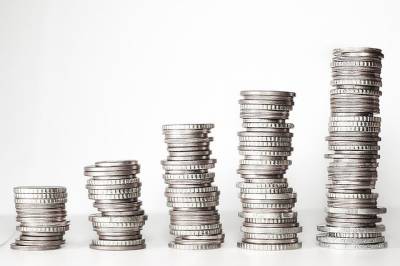Are You Making a Good Job of Managing Your Money?

Managing money should be straightforward, but it’s a major headache for a lot of people.
The basic calculation of incomings minus outgoings sounds like a simple piece of math, but it becomes a lot more complicated when you try to work out exactly what your outgoings are, and why it is that you’re short at the end of the month when on paper it says you should have a healthy balance.
Then there’s all the unexpected expenses and the things that change; how are you supposed to deal with all those? With so many other issues to deal with and tasks to finish every day, it’s not surprising that many of us don’t manage our money very well, but using a personal budget can help you take back control of your finances.
How to set up a budget
Making a hash of entering information on your budget spreadsheet is one of the main reasons these tools don’t seem to work for many people. The budget is only going to be as accurate as the data you enter into it.
It’s what programmers call GIGO – Garbage In Garbage Out, so if you don’t get the figures accurate enough, to begin with, very soon the formulae and predictions will start going off track.
When this happens, you might think that using a spreadsheet or similar tool is not a good way for you to budget, because it plainly doesn’t work. At this point try and see past these frustrations and go back to the drawing board and start working out your figures from scratch.
Getting your months right
If you create a budget based on calendar months, you are immediately going to hit problems if you don’t allow for the difference. For example, say you have a form of income that is paid to you monthly – but a 28-day month.
If you simply put in one payment per month on your calendar month-based spreadsheet, after a while, your income figures are going to start drifting.
The payment will be received a few days earlier every calendar month, and in the end, will start to be paid in the previous calendar month even though it’s a monthly payment. Your bank balance and budget sheet, therefore, have no chance of catching up, and the budget is inaccurate before you even start adding any other entries.
Calculating expenses
It can take a while to work your spending out accurately, so it’s tempting to just say you know you spend a certain amount of dollars per week on groceries, or have a look at the last few weeks’ receipts and go by that.
Using an estimate based on this poor-quality evidence will mean you won’t have an accurate estimate of how much you really spend. If you can, check a whole year’s receipts or bank statements and add up what you spent on each outgoing over the year.
You’ll find that some weeks you spent more, some weeks less so determining your spending from just a few weeks won’t be an accurate representation.
Then there are all the quick stop shops to pick up milk or bread, which all still counts towards your total. You might choose to put snacks, eating out and takeout coffee in a separate category if it will be more useful; the important factor is to account for all the expenditure you make, not just the main purchases.
If you calculate anything by the week, you need to multiply the weekly figure by fifty-two and then divide by twelve to find the right figure for your budget. These relate to the weeks and months in the year respectively.
Calculating debts
It is important to include any debt you are paying back, whether that’s loans, credit cards or mortgages. You can find out what you’re paying now pretty easily, but be careful about allowing for changes to interest rates that will impact your repayments.
If you have credit on a low or zero interest special deal, make sure you know when the interest-free period ends so you can find a new deal or a different arrangement.
Once the free period has ended, these types of cards tend to charge higher rates of interest on the outstanding balance compared to standard cards, and you could find you’re paying over the odds when the interest is being added on again.
If you have a lot of odd balances and small debts, a consolidation loan might be the best way to deal with them. Rather than having to keep track of when rates rise and risking paying over the odds for your debts, paying them all off and having just one repayment per month will be much easier to manage.
If this is an option you want to explore, speak to a financial broker like Bonsai Finance, who can help you get the best deals.
Contingencies
Contingency is a familiar concept in business, where all companies need a financial buffer to cover them should they need access to extra capital to cover unexpected costs.
The same principle is wholly applicable to personal finance too because your budget isn’t going to do you any good if you haven’t allowed for the possibility of something unforeseen cropping up. Some of your expenses will be hard to predict, for example running costs on your car.
You can calculate fuel costs and maintenance expenses like oil, servicing, tires, insurance, etc., but it’s harder to predict when the car might need major repairs done on it.
Budgeting so much per month to cover any big bills will give you a form of insurance if you are faced with any unexpected expenses. However, it is important to make sure you put the money into a separate account to keep it protected for any possible rainy days.
Follow these basic guidelines to create a budget that works and that will give you accurate information that will help you manage your money more effectively.
So what are you doing to manage your money better?






